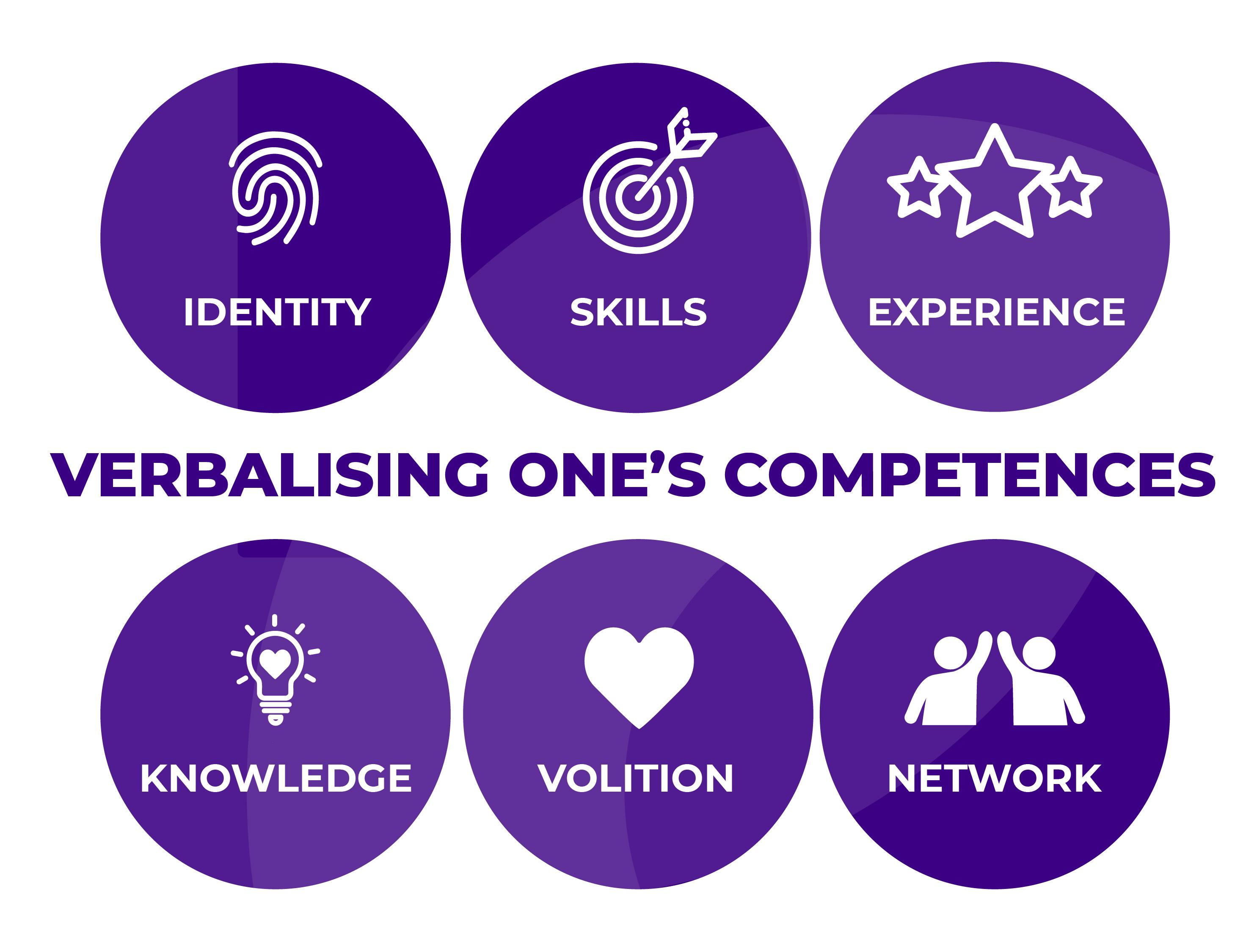Competences
Competence can be seen as consisting of knowledge, skills, experiences, attitudes and networks. Information is accumulated e.g. during studies and through practical practice. Experience is often thought of as work experience, but competence is also supported by life experience and hobbies.
Competence can be defined as the capital of an individual and the competence profile of each is unique. A number of different concepts can be used for an individual’s competence, such as skills, ability, competence or expertise. Identifying and articulating one’s own skills, self-knowledge and considering career aspirations are important parts of career planning. All the feedback and evaluation you receive will also help identify your skills. Future working life skills include directing one’s own activities and self-management, communication, interaction and cooperation skills, as well as expert skills. You can mirror your own skills during your studies, e.g. these skills, as well as the competence requirements of one’s own profession. You will find sector-specific competencies in the assessment section in the bottom bar for each training.
Competences identity
Competence identity means the perception of oneself as an expert and actor in a changing working life and society. Competence identity looks at human competence from a broader perspective than professional identity. It helps to articulate a knowledge identity when you think about what kind of skills, abilities and qualities a person has in a broad sense, which interests and motivates him or her.
The development of a knowledge identity is a lifelong process during which an individual builds and modifies an image of himself or herself as an actor. It takes shape in relation to other people and the surrounding society. The construction of a knowledge identity is a multi-layered and multidimensional phenomenon. It is not self-constructed and is not self-evident, but must be actively developed by the individual. It is essential to shape the competence identity in a meaningful way according to the current job.
Sections of competences
Articulating your competences
Articulating your competences also includes identifying and developing competencies.
Competence identification
You can start mapping your own competence and lyrics through your own reflection. What skills and strengths do I know I have? Read more about making your own strength map. You can also use various tests to confirm your own skills and possibly find new perspectives through them.
Writing competence
One’s own competence can be said, for example, through different areas.
- Through identity, your own qualities, abilities, way of doing things and, for example, values emerge.
- Skills refer to making practices and applying and implementing knowledge.
- Experience means work experience, life experience and hobbies, for example.
- Networks refer to the contacts, community, and groups you belong to.
- The will brings out your attitude and interest.
- Through the information, you bring out your expertise, e.g. through studies.
- Also check out Sitra’s know-how tools.
Self-branding and elevator talk
There is also a strong connection to the kind of personal brand you create for yourself. How do you want other people to see you and what do you want to be talked about when you’re not there? We all have some area where we are particularly good. How could you stand out with your skills and strengths in your job search? By branding yourself, you effectively market and sell your own skills in your job search.
You can also bring out your own skills with a skilled elevator speech. Read here for tips on creating an elevator speech: elevator speech in job search.

Developing competences
Competence development refers to the development of an individual’s skills on a personal level as well as the deepening of professional skills during a career. Competence development can be related to specific, targeted goals such as learning a new method or, instead of individual goals, it can also be viewed as an ongoing process. Their skills can be developed, for example, through various courses and in-service training, but also through self-study, such as reading professional literature and following current discussions, such as podcasts and webinars.
The change in working life requires new kinds of skills and competences, the realization of which the education system must respond to. Mastering sectoral competence is no longer enough, but alongside substance competence, ie specific and sectoral competence, the student should have a wide range of competence and the ability to adapt to change.
